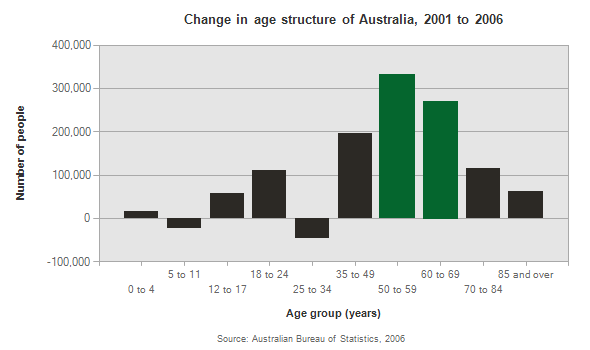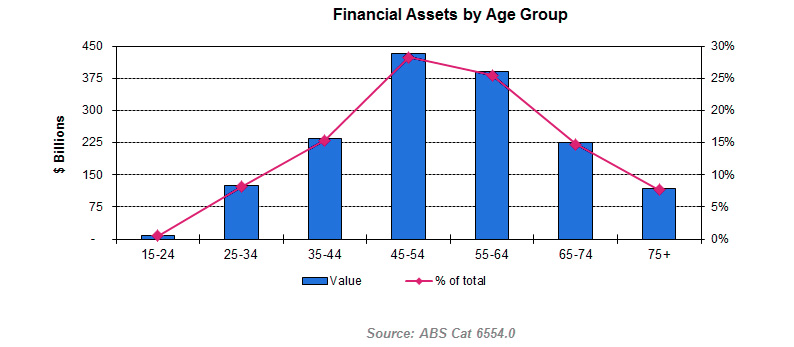The imminent transfer of wealth from the baby boomer generation to millennials is poised to reshape the economic landscape significantly. This article delves into the ramifications of this transfer on the job market and the broader economy.
Understanding the scale and implications of this wealth transfer is crucial for policymakers, businesses, and individuals alike. It represents a pivotal moment in economic history, with far-reaching consequences for various sectors.
Baby boomers, born between 1946 and 1964, constitute a significant demographic cohort known for its economic influence and cultural impact. Understanding their demographic profile and economic behaviour is essential for comprehending the dynamics of the wealth transfer.
Having dominated the workforce and consumer markets for decades, baby boomers wield substantial financial assets and hold key positions in the economy. Their retirement and wealth transfer will have profound effects on numerous sectors.
The Australian Bureau of Statistics estimate that more than 100 thousand baby boomers in Australian will be looking to sell their business between 2024 - 2027.

The financial assets owned by the baby boomers (including businesses) represents an enormous segment of overall wealth in Australia.

The baby boomer generation is defined as those born between 1946 and 1964. This generation is currently going through a retirement wave. According to a recent survey by the Australian Bureau of Statistics, nearly half of all baby boomers plan to retire within 2022 - 2026. If you are among this group and own a business, you may be wondering how to sell your business to the next generation.
For baby boomers leaving it late to sell, they must keep in mind that Dying Is Not A Business Exit Strategy. Early succession planning is key.
Millennials, born between 1981 and 1996, represent the largest generational cohort in history, characterized by digital fluency, diverse values, and unique consumption patterns. Their entry into prime earning and spending years marks a significant shift in economic dynamics.
As millennials mature into their peak earning years, their preferences and priorities are reshaping industries ranging from technology and retail to housing and finance. Understanding their economic behavior is crucial for anticipating future trends.
Thousands of Aussie millennials will have the opportunity to inherit businesses from parents and grandparents. For the baby boomers who don't have viable family members to take over the family business, they will be looking to sell their business in the years to come.
Read Article: 8 Eight Succession Tips for Baby Boomers - Don't leave it too late!
Selling a business to the next generation has several distinct advantages over selling to a third party. Read article: How to Sell Your Business to the Next Generation

Several interconnected factors, including aging baby boomers, inheritance trends, and changing family structures, contribute to the magnitude and timing of the wealth transfer. Analyzing these drivers provides insights into its dynamics.
Estimates suggest that trillions of dollars will change hands as baby boomers pass on their wealth to younger generations. Quantifying the scale of this transfer enables policymakers and businesses to prepare for its impacts.
The influx of inherited wealth into the economy can influence job creation, wage levels, and occupational trends. Examining how these dynamics interact with broader economic factors sheds light on the job market's future trajectory.
As millennials inherit wealth and exert their influence on consumer demand, industries may experience shifts in labor requirements and skill demands. Adapting to these evolving employment patterns is essential for workforce planning.
Here are the top 5 Australian industries in 2026 or wealth transfer to take place.
The transfer of wealth is likely to shape consumer preferences, spending habits, and investment decisions. Understanding these behavioral changes is critical for businesses seeking to remain competitive in a rapidly evolving market.
The redirection of assets from one generation to another can have ripple effects on investment portfolios, asset prices, and capital markets. Assessing how these changes impact financial stability and investment strategies is paramount.
Despite inheriting substantial wealth, millennials face economic challenges such as housing affordability, student debt, and income inequality. Addressing these challenges is crucial for ensuring equitable economic opportunities.
The wealth transfer presents opportunities for innovation, entrepreneurship, and wealth creation across various sectors. Leveraging these opportunities can spur economic growth and foster prosperity for future generations.
Australian policy makers may implement various measures to facilitate the smooth transition of wealth, mitigate inequalities, and promote economic stability. Evaluating the efficacy of these policies is essential for informed decision-making. Public policies, including taxation, inheritance laws, and social welfare programs, play a significant role in shaping the outcomes of wealth transfer. Analyzing the impact of Australian government initiatives provides insights into their effectiveness.
Such initiatives might include:
The impending wealth transfer from baby boomers to millennials represents a paradigm shift in economic dynamics, with profound implications for the job market and the broader economy. Understanding the drivers, implications, and policy responses is crucial for navigating this transition successfully.
As the wealth transfer unfolds, stakeholders must remain vigilant, adaptable, and proactive in addressing emerging challenges and seizing opportunities. By embracing change and fostering inclusive growth, societies can navigate this historic transition towards a more prosperous future.